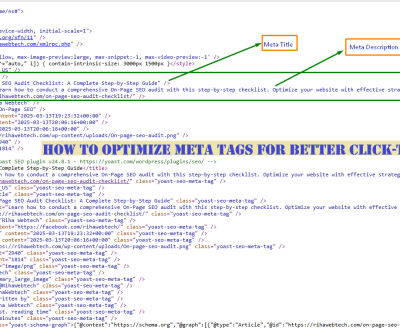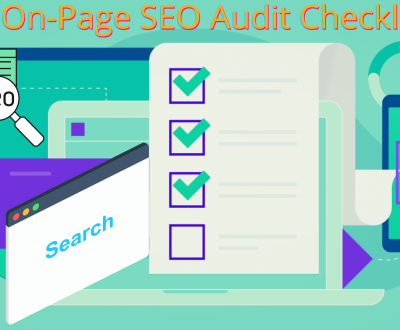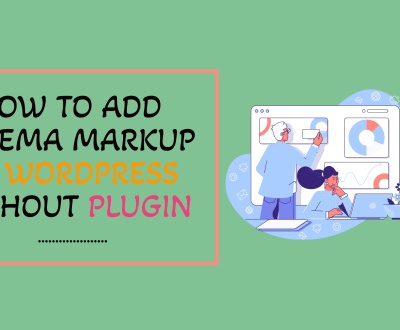What Information is Needed before You Can Start Writing Web Content
Before you can start writing web content, it is important to have a clear understanding of the purpose and goals of the website. This includes knowing who your target audience is, what topics they are interested in, and how you want them to engage with your site. Additionally, you should research common industry terms and phrases used when discussing the subject matter related to your website’s topic.
Having an understanding of this information will help shape the tone and style of your web content. It is also necessary to know any specific requirements for formatting or length that may be needed by the client or platform where it will be published. Finally, having access to relevant images or video clips can greatly enhance a user’s experience while reading web content on a website.
Before you can start writing web content, there are a few key pieces of information that you need to have in order to create effective, engaging content. This includes an understanding of your target audience, the purpose and goals for the content, and any research or data that may be necessary to support your points. Additionally, it is important to know which keywords will need to be included as part of SEO optimization so that the content is visible on search engines.
With all this information at hand, you’ll be ready to craft compelling web content!
How to Write Content for Website? What is Web Content Writing? Full Tutorial
How to Write Content for a Website Examples
Writing content for a website is an important step in creating an engaging and informative page. Content should be well-researched and tailored to the intended audience, while also providing valuable information that readers can take away from their visit. Examples of good website content include blog posts, product descriptions, FAQs, tutorials, videos, and case studies; each type has its own unique purpose but all should be written with clarity and accuracy in mind.
With thoughtful planning and careful writing techniques, you can create compelling website content that keeps visitors coming back for more!
Writing for the Web Best Practices
When writing for the web, it is important to keep best practices in mind. This includes using simple and concise language, breaking up long paragraphs into smaller chunks, creating catchy headlines and subheadings to make your content easier to skim through, using appropriate images or videos to illustrate points when necessary, including internal and external links for further information if applicable, avoiding jargon unless absolutely necessary, proofreading thoroughly before publishing the post online, optimizing the post with relevant keywords for SEO purposes where possible, and ensuring that all content is accessible on different platforms.
Web Writing Examples
Web writing is an important tool for businesses in the 21st century. It can include anything from website content, blog posts, online ads and social media messages. Examples of web writing vary depending on the type of project but typically involve short snippets of text that are easy to read, concise and engaging with a clear call to action.
Web writers must consider search engine optimization (SEO) when creating content so that it appears prominently in search results which can drive more traffic to websites and ultimately more sales or leads for businesses.
What is Web Writing
Web writing is the creation of content for a website. It involves creating engaging, informative and well-structured texts that are easy to read and understand. Web writers must have an understanding of search engine optimization (SEO) so they can ensure their content is discoverable on the web.
Web writers also need to be familiar with the latest trends in online content in order to create fresh, relevant material that will draw readers in and keep them interested.
Website Content Writing Samples Pdf
Content writing samples are an important resource for anyone looking to create compelling and informative web content. A website content writing sample PDF provides readers with the opportunity to assess a writer’s style, tone, and ability to produce engaging material that meets their needs. By viewing a portfolio of writing examples in PDF format, potential clients can gain insight into who they may be working with before making any commitments.
Web Writing Format
Web writing format is a style of writing specifically designed for readability on the web. It includes short, concise sentences and paragraphs; bulleted lists; easy-to-read headings; and links to relevant information. Web writers also use keywords throughout their content to make it easier for search engines to find and rank their content in search engine result pages (SERPs).
Website Content Writing Format
Website content writing requires a specific format to make it more reader-friendly and easier for search engines to find. This includes using short sentence structures, breaking up large blocks of text with headings and subheadings, including multimedia elements such as images or videos, providing internal links to related pages on the website, and optimizing keywords for SEO purposes. By utilizing this format when creating your website’s content you can ensure that visitors will be able to easily navigate through your site while also increasing visibility in search engine results.
How to Write Content for Website Homepage
Creating content for your website homepage can be a daunting task, but it doesn’t have to be. To write effective and engaging content for your website homepage, start by creating an outline of the most important topics you want to cover. Next, focus on organizing the information in an easy-to-read format that is clear and concise.
Finally, include targeted keywords throughout the text so that search engines can easily discover and index your page. With these tips in mind, you’ll be well on your way to crafting compelling copy for your website’s home page!

Credit: www.evolutionmarketing.com
What Do I Need to Know before Starting Content Writing?
Before you begin content writing, it is important to have a clear understanding of the topic at hand. Researching your topic thoroughly will enable you to create well-informed and accurate content that appeals to readers. Additionally, familiarizing yourself with SEO (Search Engine Optimization) principles can help ensure that your work reaches its intended audience in the most effective way possible.
Becoming knowledgeable on keyword research techniques, optimizing article titles for search engine visibility and using appropriate meta descriptions are all key factors in successful content writing. Finally, having an understanding of different types of mediums such as blog posts, press releases and infographics allows you to write effectively for diverse channels depending on what is expected from each one. Taking into account these fundamental elements will set you up for success as a content writer!
What is Needed for Website Content?
Creating valuable content for websites is essential in order to keep users engaged and coming back. Creating quality website content requires thought, time and effort, but it is an investment that pays off in the long run. Quality website content should be well written, engaging, informative and optimized for search engines.
It must also be relevant to your target audience and updated regularly with fresh content. When creating website content, you should focus on keywords that are related to your brand or industry so that search engine algorithms can pick up on them when indexing sites; this will help improve organic rankings and make sure people find what they’re looking for quickly. Additionally, using visuals such as videos and photographs can add interest to the page while still conveying important information about your business or product offering.
Finally, consider utilizing user-generated content such as reviews or comments from customers because research shows this increases engagement levels significantly – something every website owner wants!
What is Required for Content Writing?
Content writing is an important part of any online marketing strategy and requires a certain level of skill to be successful. To write effective content, it is important to have a good understanding of the topic that you are writing about as well as being able to communicate clearly in written form. It also helps if you understand SEO principles so that your content can be found easily by search engines.
Additionally, creativity and the ability to think outside the box are essential for developing unique ideas for content that will capture readers’ attention. Finally, having strong research skills will help ensure accuracy when creating articles or blog posts on different topics. All these elements combine together make up what is required for successful content writing.
How Do I Start Creating Content for My Website?
Creating content for your website is an essential part of any successful online business. Content can help you attract visitors, build trust with potential customers, and even increase conversions. It’s important to create high-quality content that resonates with your target audience and provides value.
The first step in creating content is determining the type of content you want to create. Do you want blog posts, videos, or podcasts? Once you’ve decided on the format of your content, start brainstorming topics that will be interesting to your audience.
You should also consider what kind of visuals or graphics would be beneficial in enhancing the message of your content – images are a great way to make text more appealing and engaging. Additionally, it’s helpful to have an editorial calendar so that you can plan ahead for when certain pieces need to go live – this will help keep track of deadlines and ensure consistency throughout the year. Finally, always make sure to proofread all written work before publishing it online; nothing looks worse than spelling mistakes on a professional website!
With these tips in mind, you’ll be well on your way towards creating effective web content for success!
What is the First Step in Content Writing?
Content writing is a process that requires careful planning and execution. The first step in content writing is to define your goal. This means understanding the purpose of the content you are creating, who it’s for, and how it will be used.
Once you know what type of content you need to create, then you can start researching topics related to your goal and finding sources of information that will help inform your writing. Next, focus on developing an outline or structure for the piece; this will help guide your research as well as provide a framework for organizing all the pieces together once they’re written. Finally, begin writing!
As with any form of communication—verbal or written—it helps to have an audience in mind when crafting each sentence; this ensures that every word has purpose and meaning within the overall context of what’s being said or written about. Content writing takes time and persistence but following these steps should get you started on producing quality material in no time at all!
Conclusion
This blog post has provided a comprehensive list of the information that is needed before you can start writing web content. Writing effective and engaging web content requires careful consideration of elements such as target audience, keywords and SEO principles, style and design guidelines, search engine optimization techniques, and more. With the right research and preparation in place, writers will be able to create compelling online content that meets the needs of their readers.
About us and this blog
We are a digital marketing company with a focus on helping our customers achieve great results across several key areas.
Request a free quote
We offer professional SEO services that help websites increase their organic search score drastically in order to compete for the highest rankings even when it comes to highly competitive keywords.
Subscribe to our newsletter!
More from our blog
See all postsRecent Posts
- How to Add an Internal Link in WordPress April 11, 2025
- How to Optimize Meta Tags for Better Click-Through Rates (CTR): A Comprehensive Guide April 11, 2025
- On-Page SEO Audit Checklist: A Complete Step-by-Step Guide March 13, 2025








